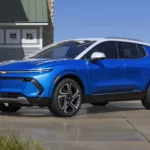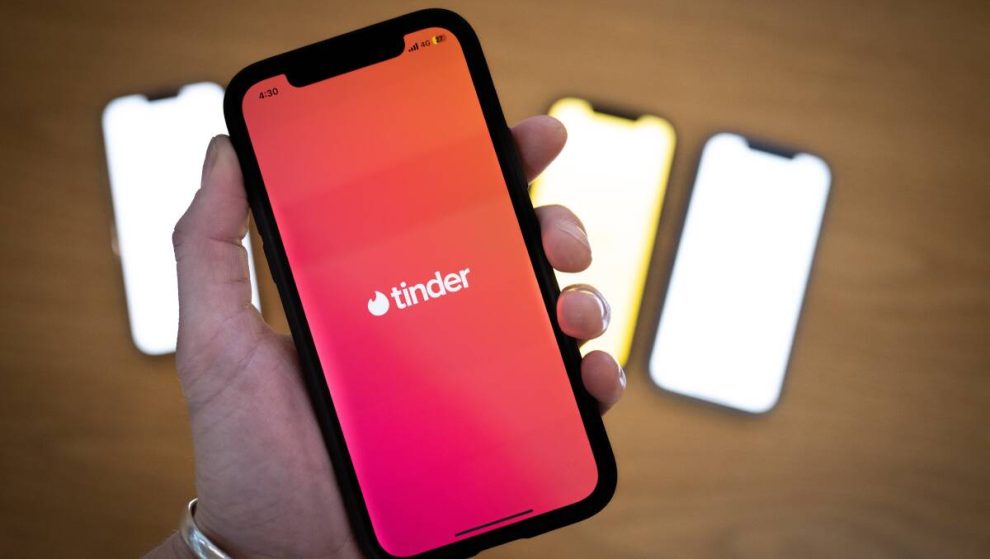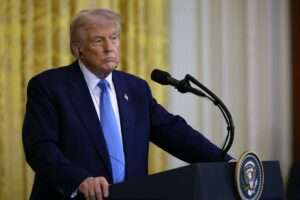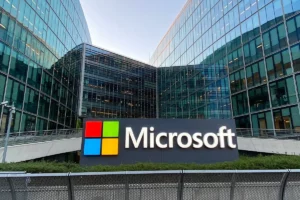Dating apps are adapting to meet the evolving needs of their users. As the 2024 U.S. presidential election looms, popular dating platforms are rolling out new features that allow users to showcase their political leanings and match with like-minded individuals. This trend reflects a growing recognition that for many, especially younger daters, political compatibility has become a crucial factor in finding “the one.
Leading the charge is Tinder, which last month launched its “Take Action Center,” a new initiative designed to engage users in the political process and facilitate matches based on shared values. The centerpiece of this feature is a set of profile stickers that allow users to declare their intention to vote and highlight issues that matter most to them.
Stephanie Danzi, senior vice president of global marketing for Tinder, explains the motivation behind the new feature: “We are really committed to protecting reproductive freedom because we believe this really impacts dating and relationships. It’s really about making sure (the app’s users) understand what is kind of at stake.
The most popular stickers among those introduced are “Hot people vote (I’m voting)” and “Voting for reproductive rights,” underscoring the significance of these issues to Tinder’s user base. This focus on reproductive rights is particularly timely, with abortion rights on the ballot in 10 states next month as the issue continues to be a major political flashpoint.
Tinder’s “Take Action Center” goes beyond mere profile enhancements. In a partnership with Vote.org, a nonpartisan voter registration organization, the app now provides users with critical election-related information, including polling locations and voter registration deadlines. This move positions Tinder not just as a matchmaking service but as a platform for civic engagement.

OkCupid’s Matching Revolution
Not to be outdone, OkCupid has taken a more nuanced approach to incorporating politics into its matchmaking algorithm. The app has introduced a dozen new matching questions focused on voter behavior and political priorities. These questions, added in January, include:
– “Are you voting in the 2024 presidential election?”
– “What’s the most important issue to you in the 2024 presidential election?”
– “Is it a deal breaker if your date is voting for a different candidate than you in the 2024 presidential election?”
This approach marks a shift from OkCupid’s previous strategy, which featured more policy-and candidate-specific questions. Michael Kaye, the director of brand marketing and communications for OkCupid, explains the rationale behind this change: “We really wanted to be mindful and careful with the questions that we were adding to the app and not adding any questions that felt like we were splintering people apart further than they already have.
Interestingly, while OkCupid’s user base tends to lean liberal, the app’s data reveals a more complex political landscape among its users. According to OkCupid, 44% of users who chose to answer a matching question on their political beliefs selected “other” among the options of “politically liberal,” “politically moderate,” and “politically conservative.”
The introduction of these features reflects a broader trend in the dating world: the increasing importance of political compatibility in romantic relationships. For many young daters, shared political values have become non-negotiable.
Ashley Houghton, a 29-year-old communications professional from California, exemplifies this trend. For Houghton, dating someone who does not share her political beliefs is “100% a deal breaker.” She brings up politics “right off the bat” when talking to potential partners on dating apps, using it as a litmus test to determine whether to continue the conversation.
This phenomenon is not entirely new. Lisa Wade, an associate professor of sociology at Tulane University, notes that young daters have been using political markers in their dating profiles for years. During the height of the Black Lives Matter movement in 2020, for instance, many users included “#BLM” in their profiles to signal their support.
Wade also points out that the COVID-19 pandemic intensified this trend. As vaccines and health mandates became politicized, and widespread protests erupted following George Floyd’s death, young daters became even more inclined to prioritize shared political values.
For those students who wanted to be cautious about Covid, for the first time ever, they started asking their potential sexual partners — who they’re mostly meeting on apps — about their level of covid cautiousness … (which) had been aligned with politics,” Wade explains. “They did decide that, even when we’re just talking about a hookup … that it mattered to them. Politics mattered to them in a way that it had not before.”
While mainstream dating apps are incorporating more political features, niche platforms catering to specific political leanings are also gaining traction. The Right Stuff, an app created in 2022 for conservative daters, offers an alternative for those seeking like-minded partners on the right side of the political spectrum.
Co-founded by John McEntee, a Project 2025 strategist and former Donald Trump aide, The Right Stuff features politically charged prompts such as “Favorite liberal lie” and “January 6 was,” allowing users to fill in the blank. However, Raquel Debono, the app’s director of marketing and communications, argues that the app isn’t “overtly political in nature.”
“Our essential purpose on the app is to connect conservatives and because they’re politically aligned … the biggest filter is sort of done for you,” Debono explains. While The Right Stuff hasn’t introduced election-specific features, it is leveraging current political events to attract young conservatives on social media platforms, particularly TikTok, where it boasts 3.3 million followers.
The increasing emphasis on political compatibility in dating apps raises important questions about social polarization and the potential for echo chambers. Casey Klofstad, a professor of political science at the University of Miami, cautions that this trend could exacerbate existing divisions.
“We are able to tailor our daily lives — whether it’s media consumption, whether it’s the leisure activities that we engage in and … the people that we associate with socially or romantically,” Klofstad notes. “The more that we do that, I fear, that deepens the divide that already exists between us.”
This concern is echoed by other experts who worry that the ability to filter potential partners based on political views could lead to further societal fragmentation. On the other hand, proponents argue that shared values are crucial for long-term relationship success and that these features simply make the dating process more efficient.
As the 2024 election approaches, it’s likely that we’ll see even more integration of political features into dating apps. The success of these initiatives will depend on how well they balance users’ desire for political compatibility with the need for diverse perspectives and meaningful connections.
For now, it’s clear that politics has become an integral part of the modern dating landscape. Whether this trend will lead to more harmonious relationships or contribute to further social division remains to be seen. What is certain is that as long as politics continues to play a central role in people’s identities and values, dating apps will continue to evolve to meet this demand.
In the words of Raquel Debono from The Right Stuff, “Political alignment is increasingly becoming a nonnegotiable factor for many people who are dating. I think that an election year just sort of highlights that as Americans have sort of made political alignment more central to their identities in general and … just increases the awareness and visibility of sort of the divide in our country.”
As singles navigate the complex intersection of love and politics, dating apps are positioning themselves not just as matchmakers, but as platforms for civic engagement and value alignment. In doing so, they’re reshaping not only how we find romantic partners but also how we engage with the political process and understand our place in an increasingly polarized world.
















Add Comment